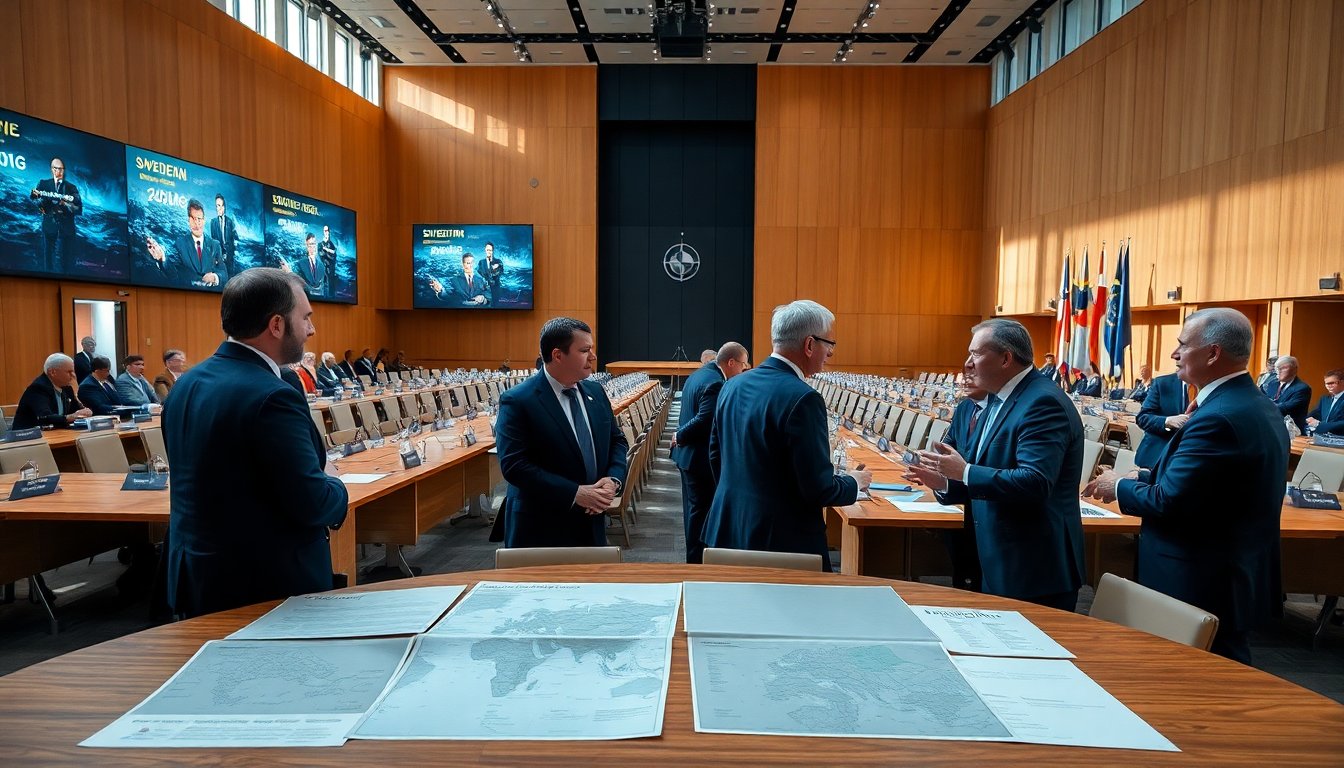Table of Contents
The Berlin Security Conference is a vital gathering for military leaders, defense ministers, and security policymakers from Europe. This year, the focus is on Sweden, which is adapting to its new role as a NATO member. Discussions will address military deterrence, the strengthening of defense systems, and the wider geopolitical implications of Russian activities in the region.
The facts
Sweden has undergone a significant shift in its defense policy, transitioning from a stance of non-alignment to active participation in NATO. This change is driven by evolving security threats in Europe. Rixa Fürsen, a journalist at a recent conference, interviewed Pål Jonson, Sweden’s Minister of Defense, who emphasized that this transition is a strategic necessity rather than a mere political maneuver.
The implications
This policy shift marks a pivotal moment for Sweden as it seeks to enhance its security framework. Jonson’s insights highlight the urgency of adapting to new geopolitical realities. By aligning with NATO, Sweden aims to bolster its defenses and ensure a more coordinated response to potential threats in the region.
The facts
The Baltic Sea has become a significant topic in security discussions due to rising tensions with Russia. According to official sources, maintaining stability in this region is crucial for both Sweden and its NATO allies. The recent collaboration between Germany and Sweden has intensified, reflecting their mutual commitment to regional security.
What happened
Officials have emphasized the need for clear protocols regarding military operations, particularly concerning the use of drones. The goal is to ensure that both nations are prepared to respond effectively to any provocations.
Germany and Sweden strengthen defense collaboration
Sweden’s integration into NATO marks a significant strengthening of its relationship with Germany. The two countries are aligning their defense strategies to effectively address shared threats. According to official sources, this partnership is essential for maintaining peace and deterrence in Northern Europe. The NATO alliance is evolving to meet new challenges, with contributions from all member states being crucial for a unified defense strategy.
The facts
A primary focus of recent discussions has been the establishment of rules of engagement concerning advanced technologies, including drones. Both Swedish Defense Minister Jonson and his counterparts stress the importance of creating clear guidelines for their deployment in military operations. This emphasis is critical as nations aim to leverage technological advancements while complying with international norms and regulations.
The consequences
The alignment of defense strategies between Germany and Sweden is expected to enhance regional security. Clear rules of engagement could facilitate the responsible use of technology in military contexts. This collaboration may also inspire other NATO members to pursue similar partnerships, potentially reshaping the defense landscape in Europe.
Jonson emphasized the necessity of transparency and collaboration among NATO members to ensure alignment on military operations. The integration of new technologies into defense strategies is transforming modern warfare. It is crucial for NATO to remain at the forefront of these developments.
The facts
Discussions at the Berlin Security Conference mark a pivotal moment for NATO as it addresses a complex geopolitical landscape. Sweden’s inclusion in the alliance strengthens NATO’s collective capabilities. As reported by Rixa Fürsen, the conference tackles both immediate challenges and establishes a framework for future strategies against evolving threats.
The consequences
The outcomes of the conference are expected to influence NATO’s response to security challenges in the region. Enhanced collaboration among member states is vital to adapt to technological advancements and new military tactics. Stakeholders anticipate that these discussions will lead to a more cohesive approach in addressing potential threats.
The commitment to mutual defense and cooperation among NATO members remains robust. Challenges from Russia have underscored the need for a united front. The collaboration between Sweden and Germany illustrates NATO’s resilience and adaptability. As the European security landscape evolves, insights from recent conferences are expected to inform NATO’s future policy decisions.
The Berlin Playbook podcast, hosted by Gordon Repinski and the POLITICO team, offers daily insights into these developments. Listeners can stay updated on the latest political trends and security issues across Europe. Tune in every morning at 5 AM for a concise overview of current political affairs.


